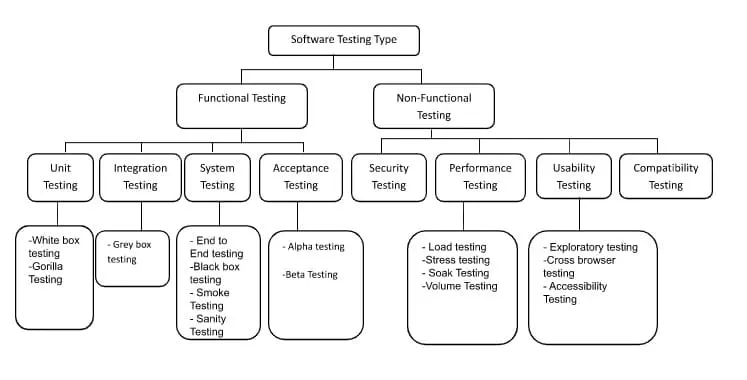A Comprehensive Guide on Software Testing
What is Software Testing?
Software Testing is defined as an activity to check whether the actual results match the expected results and to ensure that the software system is Defect free. It involves executing a software component or system component to evaluate one or more properties of interest.
A real-life example of testing is checking your car door's unlocked functionality.
- Your car door can be unlocked using your car key
- But you can’t unlocked your car door using your house key, garage door remote, neighbor’s car key( though the neighbor have the same car)

Basics of Software Testing
Software testing is a process of verifying and validating that a software program or application or product:
- Meets the business and technical requirements that guided its design and development; works as expected;
- Can be implemented with the intended infrastructure and perform acceptably under expected conditions;
- Is suitable for use;
- Is reasonably free of defects when used under specified conditions;
- And can satisfy all the other quality requirements applicable to software.
Types:
There are two types of testing
- Functional Testing
- Non-Functional Testing
Functional Testing: Functional testing is to verifies the system against the functional requirements which is provided by the client. Types of functional testing are:
- Unit Testing
- Integration Testing
- System Testing
- Acceptance Testing
Non-Functional Testing: Non-Functional testing checks the Performance, reliability, scalability and other non-functional aspects of the software system. Types of non-functional testing are:
- Security Testing
- Performance Testing
- Usability Testing
- Compatibility testing

CONCLUSION
In a website and app development company, software testing is a critical step in the development process. It involves the execution of a software component or system to evaluate one or more properties of interest. This can include functional correctness, performance, security, and compliance with business and technical requirements. Various types of testing can be performed, such as unit testing, integration testing, functional testing, and acceptance testing. It is important to have a well-defined testing strategy in place to ensure that the software is of high quality and ready for release to end users.





















Comments